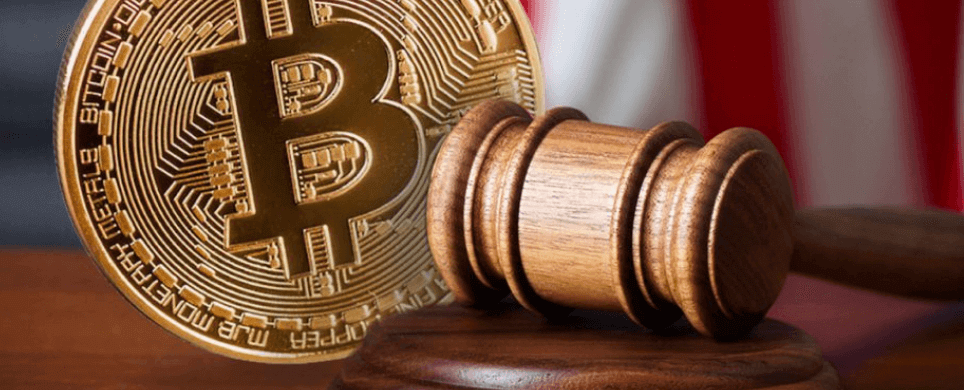Page Summary
The Bitcoin Law is a law passed by the Legislative Assembly of El Salvador that gives Bitcoin the status of legal tender in El Salvador. President Nayib Bukele proposed the Bitcoin Law and it came into effect on 7 September 2021.

What does the Bitcoin Law state?
The Bitcoin law states that Bitcoin is an official payment method in El Salvador. Citizens can even pay their taxes with Bitcoin. Retailers are required to accept bitcoin, but can also use the Chivo wallet to exchange their received Bitcoin for dollars. Stores can display the prices of their products in satoshis. There will be a massive rollout of the Chivo wallet and everyone who will use it will receive a gift of 30 dollars.
The detailed content of the bill is as follows:
- The aim of the bill is to make Bitcoin legal tender.
- The price between Bitcoin and the dollar is completely left to the free market.
- Shops may display their prices in Bitcoin.
- The exchange of Bitcoin for other currencies is tax-free.
- The US dollar is the reference currency in accounting.
- Everyone should accept Bitcoin.
- Shops can create a bitcoin wallet through the government.
- The state guarantees to facilitate the exchange between the US dollar and Bitcoin through the Banco de Desarollo de El Salvador (BENDESAL).
- There will be a $150 million trust to ease exchanges and cover costs.
History of the Bitcoin Law
Bitcoin’s role in El Salvador started in El Zonte, a small coastal village known as ‘surf town’. It has about 3,000 inhabitants and it is very underdeveloped.
47-year-old American Michael Peterson wanted to set up a local Bitcoin community there. When the tourism industry collapsed in the village, Peterson began handing out $35 to 500 families through Bitcoin. An entire local Bitcoin economy emerged as a result. Workers received their salary in Bitcoin and could use Bitcoin to buy food and other goods from local shops.
President Bukele was intrigued by this and wanted the entire country to adopt Bitcoin as legal tender. During a Bitcoin conference held in Miami in 2021, President Bukele announced that he would introduce a law that would classify Bitcoin as legal tender. According to him this would generate jobs and stabilize the economy.
With a decent majority of 62 out of 84 votes, the politicians voted in favor of the proposal. They gave themselves 90 days to get everything ready in the country. The approval in Congress was at the same time the beginning of a dichotomy.
How was the Bitcoin Law received?
The Bitcoin law was received well by most people but it was also criticized due to the volatility of Bitcoin. There were different reactions to the news, both within El Salvador, but also from outside.
- Gerry Rice, the spokesman for the IMF, said they are already in talks with regulators in the country about a new loan. It involved $1 billion in aid for the country’s economy. The adoption of Bitcoin would complicate this step.
- The World Bank has rejected El Salvador’s request to help them introduce Bitcoin as legal tender. The World Bank has problems with Bitcoin: the network consumes too much energy and the market is not transparent enough.
- Victoria Nuland, a US government representative, calls on El Salvador to be “responsible” with the adoption of bitcoin. According to Nuland, the country must apply the new legal framework that is being prepared to make Bitcoin legal tender in the country.
The reactions from their own country were not all positive. The opposition went to court. Jaime Guevara, an opposition party deputy in El Salvador, believed the path his country was taking was not constitutional. A lawyer from the country agreed with this ruling.
There were also demonstrations against the law called the Anti-Bitcoin Law Protests. Over 1,000 protestors gathered outside the Supreme Court of El Salvador to protest the law. They had concerns about Bitcoin’s volatility.
Disclaimer
eToro is a multi-asset platform which offers both investing in stocks and cryptoassets, as well as trading CFDs.
Please note that CFDs are complex instruments and come with a high risk of losing money rapidly due to leverage. 51% of retail investor accounts lose money when trading CFDs with this provider. You should consider whether you understand how CFDs work, and whether you can afford to take the high risk of losing your money
This communication is intended for information and educational purposes only and should not be considered investment advice or investment recommendation. Past performance is not an indication of future results.
Copy Trading does not amount to investment advice. The value of your investments may go up or down. Your capital is at risk.
Don’t invest unless you’re prepared to lose all the money you invest. This is a high-risk investment and you should not expect to be protected if something goes wrong. Take 2 mins to learn more
eToro USA LLC does not offer CFDs and makes no representation and assumes no liability as to the accuracy or completeness of the content of this publication, which has been prepared by our partner utilizing publicly available non-entity specific information about eToro.
